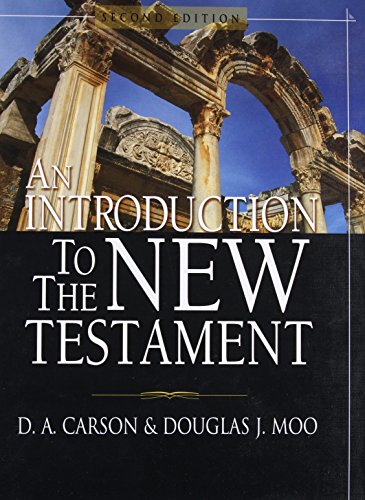
Quotes by Douglas Moo
Love is certainly the most important of all the commands that we as Christians are to obey; we could even say that it is basic to them all. But the New Testament does not countenance any replacing of law with love.
According to the Puritans, the law of Moses has two basic functions: as a “covenant of works,” it condemns the sinner who disobeys it; as an expression of God’s holy will, it directs the conduct of the people of God. For the Christians, the first of these functions is at an end, and this is what Paul means when he asserts that Christians are not “under the law” (Rom. 6:14-15). But the second of these functions remains fully in place, as Paul also suggests when he claims that the gospel “establishes the law” (3:31).
Pleasure from sex or a satisfying meal or a well-acted play is, of course, not sinful. God built within us the capacity to enjoy these things. The problem comes when the pleasure derived from these activities becomes our dominating goal. This is hedonism – and it is rampant among Christians.
[Worldly] pleasure…is a goal never reached; it is always somewhere in the distance, urging one on to new and usually more sinful practices, never quite satisfying.
Teaching about the various cults in our churches is undoubtedly a useful enterprise and helps Christians understand the errors that are so prevalent in our own day. But it is ultimately positive teaching about the Christian faith that will serve as the best protection against heresy, for we can never cover all the possible errors that false teachers might come up with.
For at the heart of Christian ministry must always be the molding of people into the image of Christ, and the full and faithful teaching of God’s truth is the means the Spirit uses to accomplish this goal.
Confidence and our status with Christ should never lead us to presumption on God’s grace.
Effective preaching about “the last things” maybe one of the best ways to help Christians internalize a worldview that puts eternity and this world in there right proportion.
This is the way it always is with false teaching. False teachers cannot force their opinions on anybody. They can only persuade people to adopt their ways of looking at things. And false teaching, of course, often has an attractive veneer. People like new ideas; and false teaching, by definition, trades in new ideas. People also like teaching that might make them feel less guilty about their own sins and failings. And certainly the false teachers of [biblical times and our day hold] out this advantage.
False teaching is often revealed in false living… Following bad doctrine leads to bad practices.
[Trials are] intended to produce, when believers respond with confidence in God and determination to endure, a wholeness of Christian character that lacks nothing in the panoply of virtues that define godly character [see James 1:2-4].
The OT law is not to be abandoned. Indeed, it must continue to be taught (Matt 5:19) – but interpreted and applied in light of its fulfillment by Christ. In other words, it stands no longer as the ultimate standard of conduct for God’s people, but must always be viewed through the lenses of Jesus’ ministry and teaching.
Wisdom is the means by which the godly can both discern and carry out the will of God.
Faith is a dynamic, powerful force, through which the believer is intimately united with Christ, his Lord.
God’s gracious acceptance of us does not end our obligation to obey Him; it sets it on a new footing. No longer is God’s law a threatening, confining burden. For the will of God now confronts us as a law of liberty [James 1:25] – an obligation we discharge in the joyful knowledge that God has both “liberated” us from the penalty of sin and given us, in His Spirit, the power to obey His will.
In His message of the kingdom, Jesus announced the overwhelming, amazing wonder of God’s sovereign grace reaching down to reclaim sinful people for Himself. But no one emphasized as strongly as Jesus the need for people touched by God’s grace to respond with radical, world-renouncing obedience. Both the gracious initiative of God and the grateful response of human beings are necessary aspects of the gospel.
The faith exercised in prayer is faith in the God who sovereignly accomplishes His will. When we pray, our faith recognizes, explicitly or implicitly, the overruling providential purposes of God. We may at times be given insight into that will, enabling us to pray with absolute confidence in God’s plan to answer as we ask. But surely those cases are rare – more rare even than our subjective, emotional desires would lead us to suspect.
The biblical writers…suggest that all persons will inevitably “mourn” for their spiritual state. They can wait to mourn until it is too late, when God has brought His judgment on the earth. Or they can mourn now, turning sorrowfully from their sin so that they will have no occasion to mourn when the Lord returns.
[A] “trial” refers to any difficulty in life that may threaten our faithfulness to Christ.
Christian maturity is not indicated by the infrequency of temptation but by the infrequency of succumbing to temptation.
Our truthfulness should be so consistent and dependable that we need no oath to support it: a simple “yes” or “no” should suffice [Mt. 5:34-37; Jas. 5:12].

